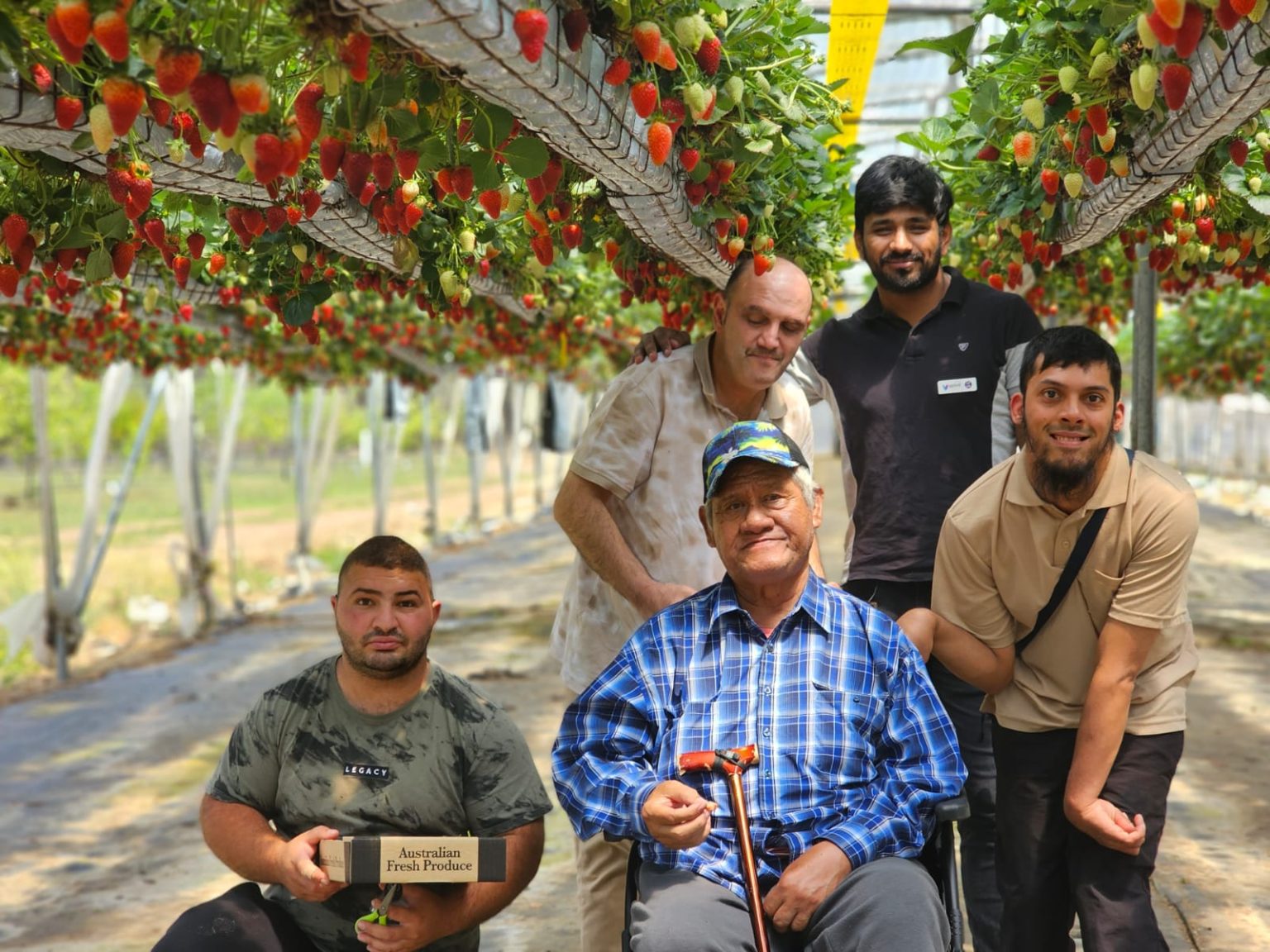Understanding the Role of NDIS Community Participation

Strong 8k brings an ultra-HD IPTV experience to your living room and your pocket.
What Is NDIS Community Participation?
NDIS community participation is a vital part of the National Disability Insurance Scheme (NDIS) in Australia. It focuses on helping people with disabilities engage in social and community activities. This support is designed to help participants connect with others, build skills, and enjoy a more inclusive life.
It is more than just attending events or joining groups. It allows individuals to take control of their social life and develop confidence. Whether it's joining a sports club, learning a hobby, or volunteering, this type of support plays a big role in improving mental and emotional well-being.
How It Supports Social Inclusion
NDIS community participation aims to remove barriers that stop people from being active members of their local areas. Many people with disabilities often face challenges like transport issues, lack of support workers, or even fear of rejection. This is where the NDIS comes in by offering the assistance needed to overcome these issues.
By taking part in everyday activities, individuals build stronger relationships and feel more connected. It also gives them a chance to learn how to communicate better, work in teams, and understand different social settings. All of these experiences help develop independence and life satisfaction.
What Activities Are Included?
The activities supported under NDIS community participation can be very broad. It all depends on what the individual needs or enjoys. Some people may want to take up art classes, attend workshops, go to the gym, or join music groups. Others might prefer helping out at a local shelter or being part of a support group.
Each activity is chosen based on the participant’s goals and needs. NDIS makes it flexible and personal, which means that individuals are not forced into activities they don’t enjoy. The goal is to build social skills and enjoy meaningful participation.
Building Everyday Skills
One of the biggest benefits of NDIS community participation is the chance to build essential skills. These may include communication, time management, teamwork, and decision-making. Learning such skills in real-life settings makes them easier to understand and apply.
When someone attends regular classes, events, or social outings, they also learn how to organise themselves. This encourages self-reliance and reduces the need for ongoing support. Eventually, it can even help with employment readiness and long-term independence.
Personalised Support Plans
NDIS works with participants to develop a plan that suits their lifestyle. This includes details of the kind of community activities they are interested in, along with the level of support they need. For example, some people may require a support worker to accompany them, while others might just need transport assistance.
NDIS community participation is never a one-size-fits-all service. Every plan is unique, ensuring that each individual gets the support they truly need. This personal touch increases the chance of success and long-term benefits.
The Role of Support Workers
Support workers play a major role in making community participation possible. They provide hands-on help, encouragement, and even emotional support. They can assist in preparing for an activity, attending events with the participant, or helping them connect with others.
Good support workers not only help with physical tasks but also act as motivators. They encourage participants to try new things, step out of their comfort zone, and face social situations with confidence. This bond is often the key to successful participation.
NDIS Community Participation and Mental Health
The mental health benefits of staying socially active are well documented. For people with disabilities, being part of a community can reduce feelings of isolation and depression. When individuals feel valued and seen, their self-esteem grows.
Taking part in group events or learning something new can bring joy and a sense of achievement. It adds structure to daily life, which is important for emotional stability. NDIS community participation is a great tool in creating a balanced and mentally healthy routine.
Helping Young People with Disabilities
NDIS community participation also offers strong support for younger people living with disabilities. Social skills are often built in childhood and teenage years, making early participation highly valuable. Through schools, clubs, and youth programs, young participants can develop lifelong connections.
It also teaches them the importance of inclusion, self-expression, and identity. The more they engage with others early on, the easier it becomes to face challenges later in life. These early experiences shape their future interactions and emotional health.
Supporting Cultural and Recreational Interests
Australia is a diverse country, and people from all backgrounds deserve the chance to enjoy their culture and hobbies. NDIS community participation encourages individuals to explore their interests without restrictions. From attending religious events to joining a local cultural dance group, the program supports it all.
It also promotes equal opportunities in sports, recreation, and the arts. Having this kind of freedom not only respects personal identity but also strengthens confidence. Participants can express who they are and where they come from without fear or judgment.
The Role of Providers
Service providers that offer NDIS community participation need to be trained, compassionate, and flexible. They must understand each individual’s plan and offer options that suit them best. Providers are also responsible for organising safe and inclusive activities.
Their support can include scheduling, staff management, transportation, and even communication with family members. A good provider creates a reliable environment where participants feel secure and valued.
Adapting to New Challenges
Life constantly changes, and so do the needs of people with disabilities. NDIS community participation evolves with these changes. Whether someone moves to a new place, develops new interests, or faces health changes, the support remains flexible.
This adaptability is one of the biggest strengths of the NDIS model. Participants are not locked into fixed plans. They can update their goals and activities as they grow or as their circumstances shift.
Community Participation and Employment
For many, community participation is the first step toward employment. It helps build the social and workplace skills needed for a job. Through volunteering or taking part in group projects, individuals gain experience that employers value.
NDIS community participation also improves communication, punctuality, and task completion. These are essential when moving into paid work. For those who want a job, this kind of support becomes the foundation of future career success.
Real-Life Impact Stories
Across Australia, there are thousands of stories where NDIS community participation has changed lives. From isolated individuals finding friendship groups to young adults gaining confidence through sports, the program delivers real results.
It doesn’t just benefit participants—it impacts families, caregivers, and communities. Everyone becomes part of a more inclusive and supportive environment.
Conclusion
NDIS community participation is more than just a service—it’s a doorway to inclusion, independence, and personal growth. By offering personalised support, skill-building opportunities, and meaningful social engagement, it empowers people with disabilities to live fuller lives.
The program proves that everyone deserves the chance to connect, belong, and grow. With the right support, limitations turn into strengths, and communities become stronger and more united. NDIS community participation stands as a powerful example of what inclusive support can achieve. for blog visit our site indibloghub.
Note: IndiBlogHub features both user-submitted and editorial content. We do not verify third-party contributions. Read our Disclaimer and Privacy Policyfor details.


